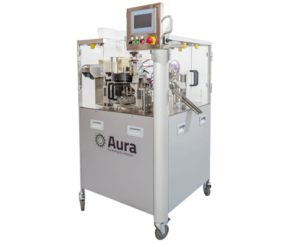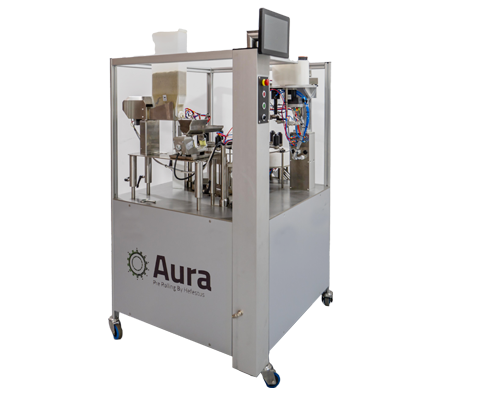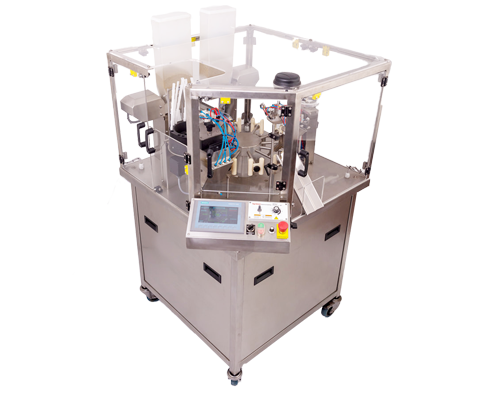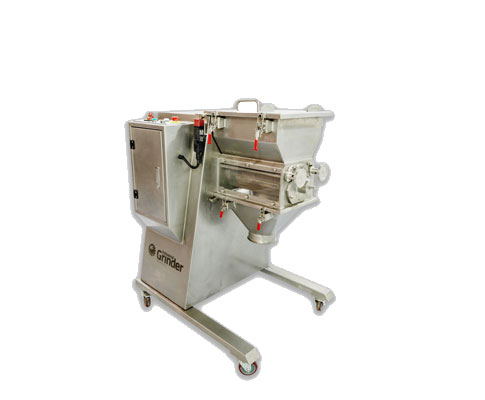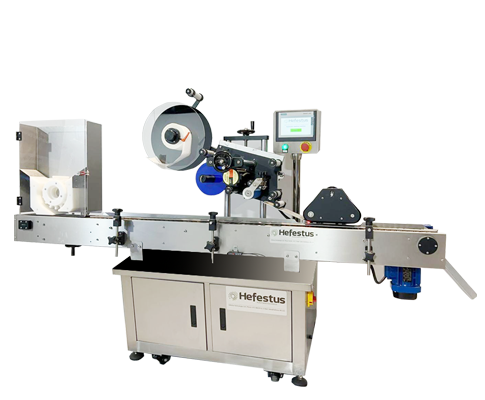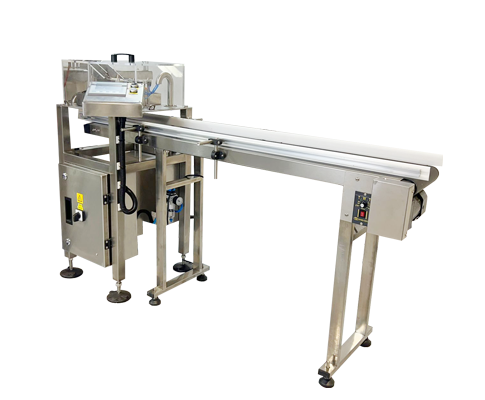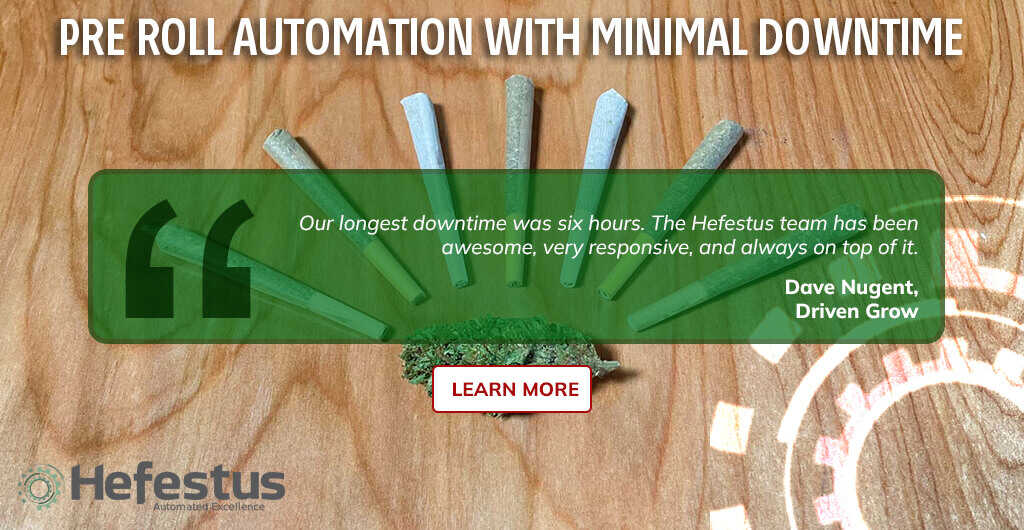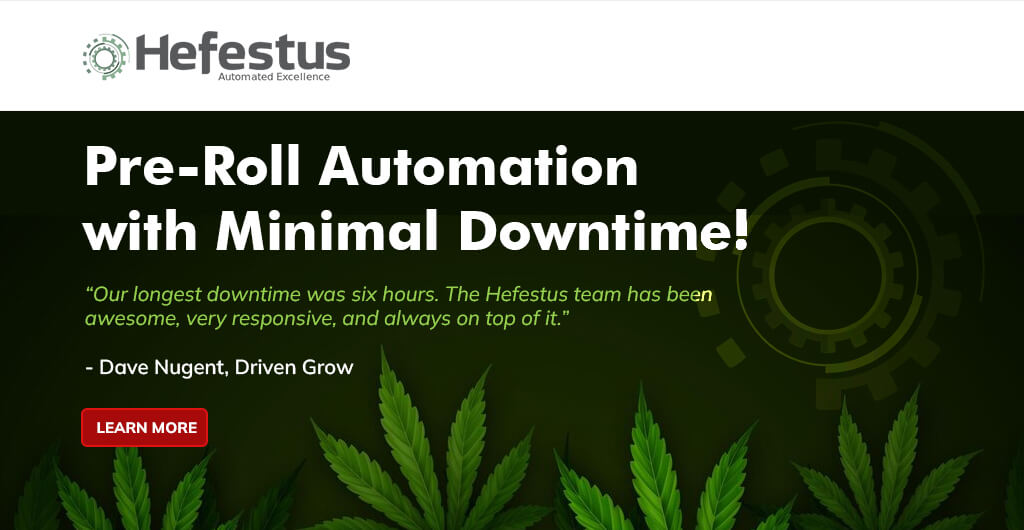In the burgeoning world of cannabis production, the stakes are high and the pressure intense.
As demand for pre-rolls, infused pre-rolls, and blunts skyrockets, producers find themselves grappling with the challenges of meeting market needs.
The intricate dance of scaling production while maintaining quality is fraught with operational stress, particularly in environments reliant on manual processes.
In these manual environments, the stressors are palpable. Lengthy hours, meticulous attention to detail, and the relentless pace needed to meet orders can push production teams to their limits.
This high-stress scenario often leads to employee burnout, increased error rates, and ultimately impacts the bottom line. It’s a tightrope walk where the balance between demand fulfillment and operational health is constantly tested.
Identifying Stress in Production
In the demanding realm of manual cannabis production, the signs of stress are varied and often deeply ingrained in the daily operations. Recognizing these indicators is the first step in addressing and ultimately alleviating them.
- Long Working Hours: One of the most visible signs of stress is the extension of working hours. Production teams find themselves caught in a cycle of long, exhausting shifts to keep up with the growing demand, leading to fatigue and reduced efficiency.
- Employee Burnout: A direct consequence of prolonged stress and overwork, burnout manifests in decreased motivation, lower productivity, and a higher rate of errors. This not only affects individual well-being but also impacts the overall quality of the production output.
- High Error Rates: In a high-pressure manual environment, the likelihood of mistakes increases. These errors can range from minor inconsistencies in product quality to significant operational mishaps, each affecting the reliability and reputation of the brand.
Real-Life Example
Consider a mid-sized cannabis producer who, in an effort to meet increasing orders, pushed their workforce to longer hours. The initial increase in output quickly plateaued, as staff fatigue led to a noticeable rise in production errors and a dip in overall product quality. This situation illustrates the compounding nature of stress in a manual production setting.
Identifying these stress factors is crucial for cannabis producers. It sets the stage for exploring how automation can not only alleviate these pressures but also transform the production process into a more sustainable and efficient operation.
The Role of Automation in Easing Operational Tension
The introduction of automation into cannabis packaging offers a lifeline to businesses grappling with the stressors of manual processes. By streamlining production, automation brings a multitude of benefits that directly address the root causes of operational stress.
- Increased Efficiency: Automation dramatically speeds up production processes, allowing for a higher output with less human effort. For example, the AuraX can produce up to 2,000 premium pre-rolls per hour – with just one operator. This efficiency reduces the need for extended working hours, directly tackling one of the primary sources of stress in manual environments.
- Reducing Employee Burnout: With pre roll machines handling repetitive and labor-intensive tasks, employees are freed from the physical and mental toll of such activities. This shift not only preserves their well-being but also allows them to focus on more fulfilling and strategic aspects of their work.
- Consistency and Reduced Errors: Automated systems offer a level of precision and consistency that is challenging to achieve manually. By minimizing human error, these systems enhance product quality and reliability, alleviating stress related to quality control.
Case in Point
Jessie, lead tech for Hefestus in the U.S. recalls how the Aura line of automation equipment has transformed production environments. Clients who were once “out of breath” trying to keep up with orders found relief in automation.
As Jessie puts it, these solutions give back “sanity in production.” Companies that adopted the Aura line experienced a drastic reduction in stress, with the ability to produce more consistently and efficiently, lifting the heavy burden off their staff.
The Ripple Effect: Beyond the Production Line
The benefits of integrating automation into cannabis production extend far beyond the confines of the production line, creating positive ripple effects throughout the entire business.
Enhanced Employee Satisfaction
With the reduction of stress and burnout, employees tend to be more satisfied with their work. This higher morale can lead to increased engagement, loyalty, and a lower turnover rate, fostering a more positive workplace culture.
Improved Product Quality
Automation’s precision and consistency result in a higher quality product. This improvement strengthens the brand’s reputation in the market, leading to greater customer satisfaction and potentially increased sales.
Better Customer Service
A stress-free production environment means employees can devote more time and energy to customer service and engagement. This focus on customer relations can enhance the overall experience, building stronger customer loyalty and brand advocacy.
Operational Health and Growth
A business that efficiently manages its production stress is better positioned for sustainable growth. With a more content workforce and reliable production, the company can scale up operations while maintaining quality and employee well-being.
Embracing a Stress-Free Future
The journey from stress to success in cannabis production is paved with the strategic implementation of reliable automation.
By embracing these technological advancements, businesses are setting the stage for a more efficient, harmonious, and prosperous operational environment.
The transition to automation goes beyond improving output; it signifies a commitment to employee well-being, product quality, and customer satisfaction.
It’s an acknowledgment that the future of cannabis production lies in the synergy between human ingenuity and technological precision.
For operators in the cannabis industry, the message is clear: embracing automation is a response to growing demands; and it’s a proactive step towards creating a more sustainable, stress-free, and successful business model.
As we look to the future, it’s evident that those who adapt and innovate will not only survive the pressures of today’s market but will thrive in the dynamic landscape of tomorrow.

